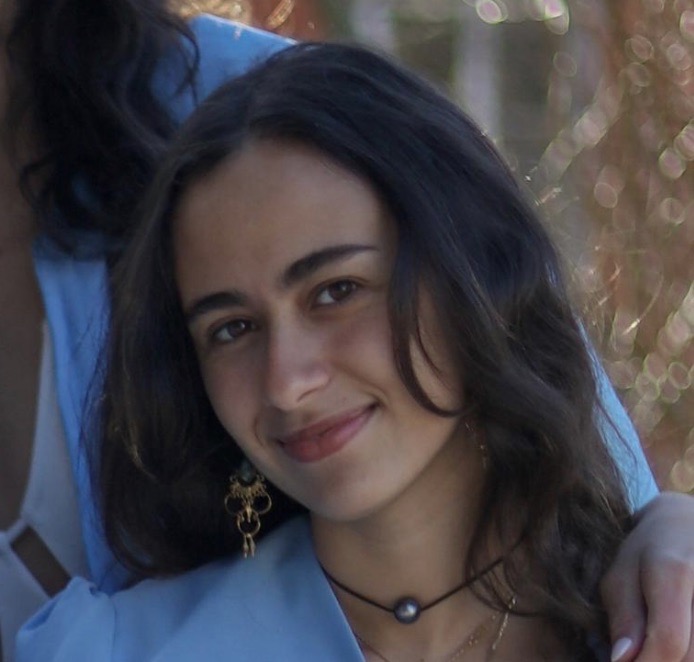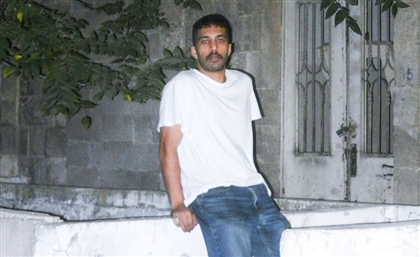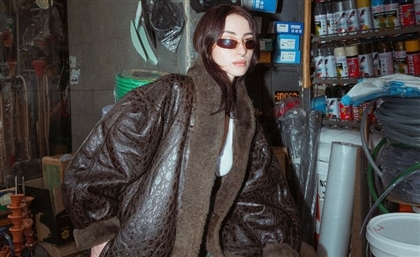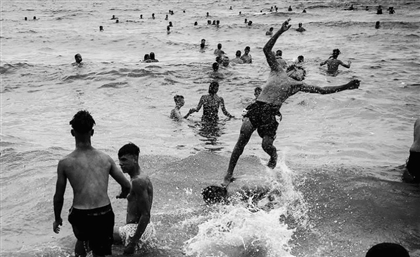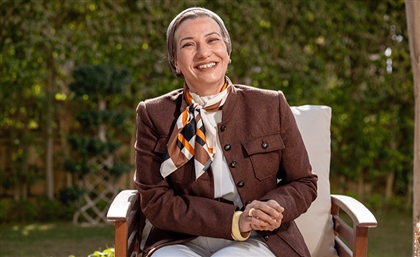Unveiling the Keffiyeh: Arabian Panther on the Masked DJ Legacy
In a conversation with Arabian Panther, we unmask the irony of identity concealment and celebrity culture in electronic music.
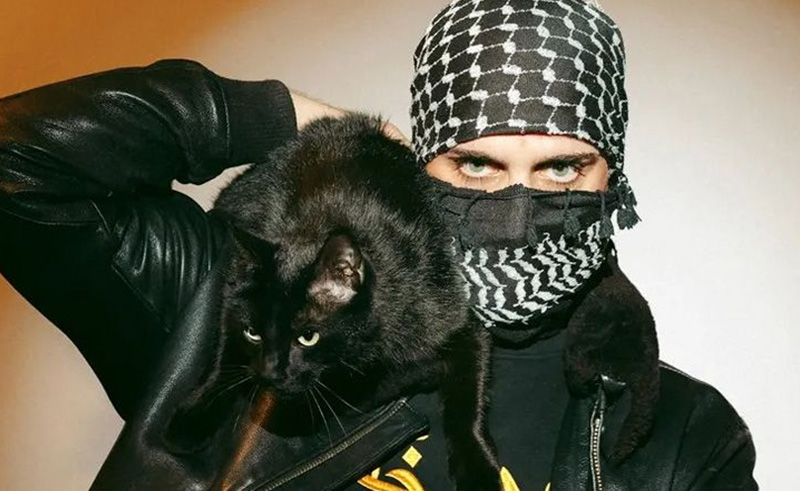
Privacy, Vanity, Anonymity, or Parody?
A longstanding tradition within the electronic music community, donning a mask or facial disguise has transcended mere novelty to become a powerful symbol of the underground scene - a phenomenon rich with intention, meaning, and intrigue spanning two decades.
Traditionally, artists across various mediums often bared their true identities as the focal point of their craft. Yet, a new trope has recently emerged within the DJ/producer universe, whereby performers deliberately obscure their identities, for the sake of their artistry.
The 20th and 21st centuries has seen DJs becoming public figures, seamlessly blending and integrating their personas into the celebrity landscape, participating in partnerships, fashion campaigns, advertorials and more - transforming themselves into brands beyond their music. The figure behind the decks is quickly thrusted before them, centered in the limelight of the capitalist imagination, morphing into a commercialized commodity. As a consequence, the purity of their artistry is overshadowed as music seems to be cast to the side. In retaliation, a movement has emerged among DJs and producers, aiming to reclaim the spotlight for their craft alone as a means to ‘let the music speak for itself.’ The mask emerges as both a playful and strategic defense, a barrier against the conflation of artistry and personality. It acts as a safeguard, ensuring that the music remains the primary focus, with the artist serving merely as its conduit.
In retaliation, a movement has emerged among DJs and producers, aiming to reclaim the spotlight for their craft alone as a means to ‘let the music speak for itself.’ The mask emerges as both a playful and strategic defense, a barrier against the conflation of artistry and personality. It acts as a safeguard, ensuring that the music remains the primary focus, with the artist serving merely as its conduit.
Similarly, the stage that illuminates the mask remains veiled in secrecy, with party concepts launching to support the legacy of the veiled performer, such as Cercle’s ‘One Way’ party series. Here, revelers are left in suspense, as the identity of the DJ remains concealed behind the decks. With each scheduled performance, an artist emerges from the shadows, playing amidst darkness, able to perceive the audience but remaining hidden themselves. This challenges the traditional notion of a stage, transforming it into a realm solely for auditory immersion, devoid of idol worship.
From tech-house DJ Claptone's enigmatic golden plague doctor mask to Daft Punk's iconic metallic helmets and high-tech minimal techno specialist Boris Brejcha's Venetian joker disguise, each artist's mask captivates and garners more attention than the unknown face beneath, crafting narratives of mystery and intrigue. The mask confuses audiences, retains anonymity and delivers a unique story. It disrupts and effaces our natural inclination to idolize the artist, displacing our fascination and redirecting it onto the music itself.
Now, the mask assumes center stage, becoming the defining element of the performance and the principal signifier. However, this shift prompts a critical question: Has the mask not become an identity and product in itself - a dynamic paradox that unfortunately unties its principal function as a concealer?
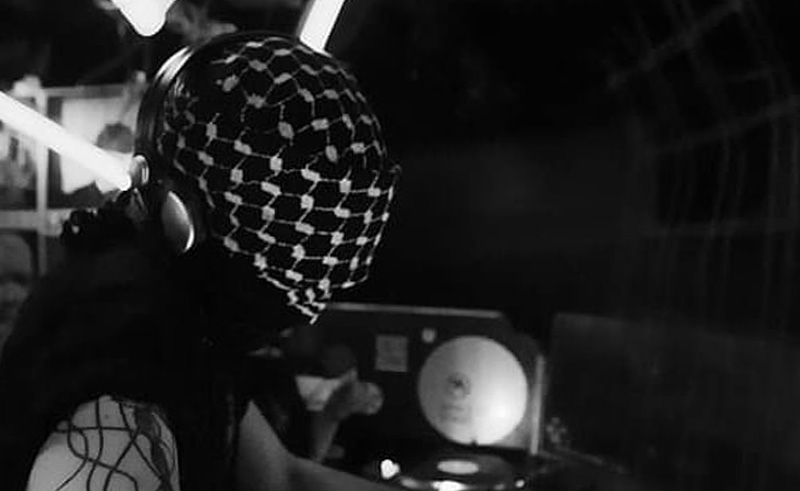 In delving into the intricate layers of symbolism in the legacy of mask-wearing, SceneNoise had the privilege of engaging in a candid conversation with Lebanese DJ and producer, Arabian Panther. As we explored the nuances of his artistic journey, Arabian Panther provided invaluable insights into the complexities surrounding his choice of wearing a black keffiyeh on stage, and the paradoxical nature of its reception in the realm of music marketing.
In delving into the intricate layers of symbolism in the legacy of mask-wearing, SceneNoise had the privilege of engaging in a candid conversation with Lebanese DJ and producer, Arabian Panther. As we explored the nuances of his artistic journey, Arabian Panther provided invaluable insights into the complexities surrounding his choice of wearing a black keffiyeh on stage, and the paradoxical nature of its reception in the realm of music marketing.
In music, symbolism often intertwines with identity, culture, and activism. For Arabian Panther, the choice of attire goes beyond mere fashion—it's a statement, a tribute, and a paradox. The enigmatic figure behind the moniker "Arabian Panther," draws inspiration from a fictional character symbolizing resistance and unity.
"My project tells the story of a fictional character, the Arabian Panther, a desert warrior riding a panther, a scimitar in one hand to combat injustice, a teapot in the other to warm hearts and bring people together'" the artist shares. "I like to hide behind this character; it gives life to my project."
Reflecting on familial ties to Lebanon and his father's involvement in the Lebanese civil war, the artist's solidarity with the Palestinian cause runs deep. "South Lebanon and Northern Palestine are historically and culturally inseparable," he asserts. “People tend to forget that Israel invaded Lebanon for 22 years. So, of course, I've been supporting the Palestinian struggle since my childhood.”
The journey of solidarity commenced with the release of his first EP "Desert's Anthem," catching the attention of Palestinian DJ Oddz, forging connections within the Palestinian music scene. Performances in Ramallah and Haifa further solidified this bond. Yet, the keffiyeh transcends a mere emblem of solidarity; it serves as a conduit for juxtaposition and reflection.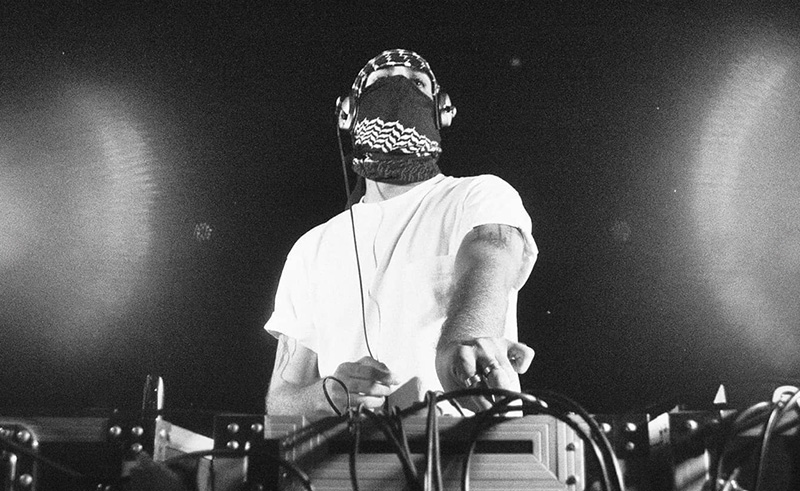 "Wearing a keffiyeh on stage isn't solely about hiding myself behind the 'Arabian Panther' persona or expressing support for Palestine," he clarifies.
"Wearing a keffiyeh on stage isn't solely about hiding myself behind the 'Arabian Panther' persona or expressing support for Palestine," he clarifies.
The significance of the keffiyeh on stage is all about creating a contrast, challenging perceptions, and sparking dialogue. A traditional garment, now carrying a revolutionary weight, the keffiyeh evokes disparate responses—symbolizing freedom for some, fear for others.
“The aim of wearing the keffiyeh on stage is to create a contrast between the atmosphere I'm trying to build while performing - from dark and slow music, EBM to more cheesy Italo disco, rave music, or even more "sunshine" vibes- and the immediate thoughts that come to some people's minds in the audience when they see me on stage" he explains. “For some white people here, it represents terrorism, barbarism, violence - maybe it reminds them of their colonial past" highlighting the inherent cognitive dissonance the keffiyeh attempts to ignite.
Drawing parallels to the legacy of masked DJs like Deadmau5 and Daft Punk, Arabian Panther elucidates on the multifaceted nature of anonymity in music and reflects on his role within that practice. "Hiding the human aspect can make sense with this kind of music," he opines. "It allows certain artists, lovers of music to be more comfortable in public and on stage." However, he underscores the essence of amplifying the characters created, aligning with Daft Punk's vision of anonymity and storytelling. “I perfectly align with Daft Punk's vision: remaining anonymous, yes, but above all, highlighting the characters they have created, which amplify the impact of their music.”
Despite the mask's initial purpose of diverting attention from the individual, it inevitably morphs into a symbol synonymous with the artist—a paradoxical evolution, as the artist acknowledges. "It's both a way to be humble and discreet…and stay 'underground' and it also becomes a marketing argument, it’s a paradox we must accept," he reiterates, navigating the dichotomy of anonymity and recognition. Amidst the artistic discourse, the artist maintains a pragmatic approach to his attire. "I always wear my keffiyeh on stage when I perform," he affirms. However, flexibility prevails in certain scenarios, such as back-to-back sets or prolonged performances where practicality takes precedence.
Amidst the artistic discourse, the artist maintains a pragmatic approach to his attire. "I always wear my keffiyeh on stage when I perform," he affirms. However, flexibility prevails in certain scenarios, such as back-to-back sets or prolonged performances where practicality takes precedence.
In essence, the black keffiyeh transcends its fabric; it embodies a narrative and project of resilience, unity, and cultural pride. Arabian Panther's latest EP, "The Death Of The Panther," on the label Ritmo Fatale, marks an exciting addition to his musical endeavors. With a significant presence in the Toulouse scene for over a decade, Arabian Panther's fusion of Arab influences, techno, EBM, and Italo Disco is evident. Dedicated to the late Ramallah-based DJ Oddai Masri, the EP carries emotional depth, while also serving as a platform for the French-Lebanese artist to advocate for the Palestinian cause and promote peace and freedom on the dancefloor.
As the "Arabian Panther" and its lore continues to captivate audiences, the symbolism of his attire resonates, a testament to the power of music to provoke thought, destabilize audiences and inspire other Arab artists to adorn the keffiyeh.







